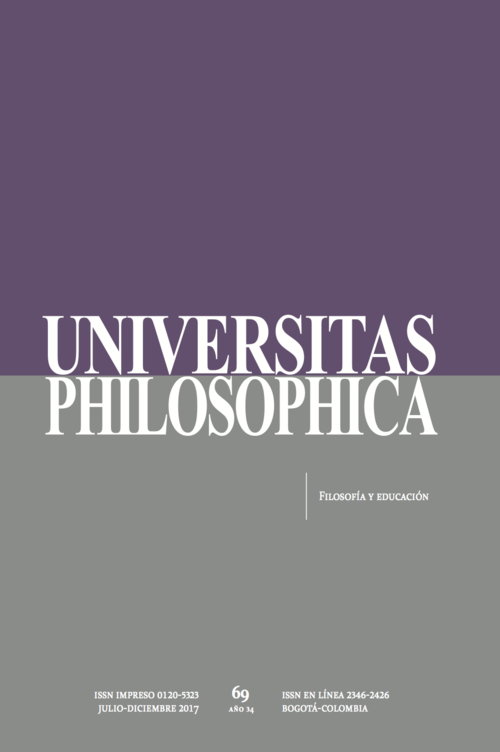Abstract
This paper reflects on the relation between discourse, knowledge and institutions, in the context of the teachings of the French philosopher Michel Foucault. The question about discourse leads Foucault to inquire about the relation between knowledge and power. The imbrication of knowledge and power that his analysis uncovers sets in motion a powerful and multiple production technology that extends with positive effects to all society and institutions. An example of this is the institution of school and in its particular rediscovery of disciplines. We briefly review the writings of humanists of the sixteenth and seventeenth centuries as examples of the positive effects of the idea of educating men and women in intellectual tasks through the study of school disciplines, indispensable to achieve critical thought, the core of the positive and productive effect of school learning.
This journal is registered under a Creative Commons Attribution 4.0 International Public License. Thus, this work may be reproduced, distributed, and publicly shared in digital format, as long as the names of the authors and Pontificia Universidad Javeriana are acknowledged. Others are allowed to quote, adapt, transform, auto-archive, republish, and create based on this material, for any purpose (even commercial ones), provided the authorship is duly acknowledged, a link to the original work is provided, and it is specified if changes have been made. Pontificia Universidad Javeriana does not hold the rights of published works and the authors are solely responsible for the contents of their works; they keep the moral, intellectual, privacy, and publicity rights.
Approving the intervention of the work (review, copy-editing, translation, layout) and the following outreach, are granted through an use license and not through an assignment of rights. This means the journal and Pontificia Universidad Javeriana cannot be held responsible for any ethical malpractice by the authors. As a consequence of the protection granted by the use license, the journal is not required to publish recantations or modify information already published, unless the errata stems from the editorial management process. Publishing contents in this journal does not generate royalties for contributors.


